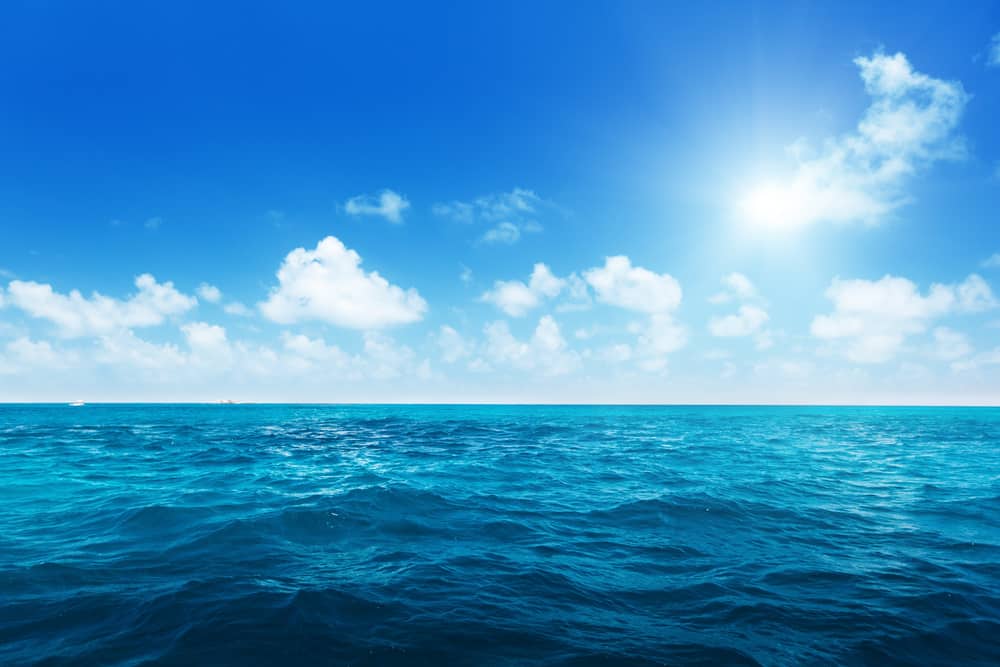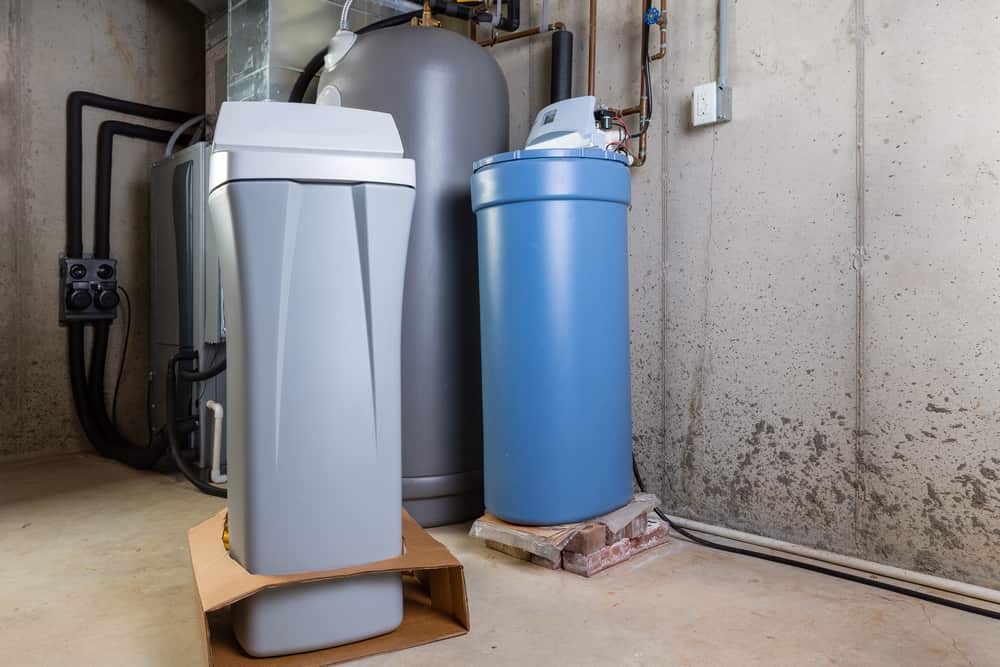Water tops the list of essentials that are needed for daily survival. From cooking to bathing and washing, it is a necessity that survival hinges on. However, not many people know that water can be responsible for acne breakout.
Many conditions, treatments, and regimens have been linked as the culprit for nasty acne breakouts. However, not for a stretch would you have thought that water could be responsible for acne. It is difficult to fathom that the smooth and refreshing feeling your skin feels after taking a bath can foreshadow an acne breakout, and you are not the only one with that feeling.
So, can hard water cause acne? And how does it do that?
Can Hard Water Cause Acne?
Hard water can, indeed, cause acne. Before proceeding with the chemistry and how it occurs, you should know that three primary things cause acne. They include:
- Blocked skin pores
- Excess oil production
- Bacteria
Related Post: What Are The Hidden Causes Of Acne On Your Face?
Hard water contains magnesium, calcium, and a few other chemical deposits. As a result, as you might have seen, hard water clogs supply pipes and can be seen as a hard to peel off sedimentation on the inners of supply pipes. In a similar way, it can do the same to the skin.
Although the chemicals themselves don’t pose any health risk, they leave residue on the skin after washing. When you take your bath with soap/shampoo, water is supposed to dissolve the soap, and form a lather, and carry the same away during rinsing.
When it is hard water, it does not easily dissolve soap in it, and a thick lather does not form. While rinsing, it leaves a soap residue on your skin. Since the body naturally makes and releases natural oil to the skin surface, it can mix with the soap residue and clog the pores, paving the way for an acne attack.
Naturally, the acne cycle occurs when excess dead skin cells and oil produced by the skin clog the skin pore. In this case, the combined effect of the oil and soap residue caused by hard water is responsible for the clog.
The chemical reaction caused by the residue causes a reaction with the skin’s oil and changes the consistency of the same from liquid to wax. The residue has the same effect on creams too, including the non-comedogenic ones.
After washing and drying your face with hard water, the impurities cling to the skin, and even creams that are formulated not to clog the pores end up blocking the pores.
Apart from this, the impurities have a trace of free radicals caused by the chemicals. Free radicals are known to cause collagen breakdown. Since collagen is designed to keep the skin firm, collagen breakdown would reflect as signs of premature aging.
In essence, hard water contains chemicals that leave impurities on the skin after every bath. The impurities mix with the skin oil and non-comedogenic creams and clog the pores.
Apart from this, the minerals form free radicals that damage healthy cells and lead to wrinkles and increased aging signs. The minerals also strip moisture from the skin and cause the skin to produce more to meet the demand. However, whatever oil makes it to the skin ends up mixing with the residue on the skin and clogs the pores. So, yes. Hard water can cause acne and a host of other skin issues.
So, is soft water good for acne? The difference between hard and soft water is in the level of magnesium and calcium they both contain. Since higher mineral levels make water hard, a lower level will keep it soft. Soft water forms a healthy lather when you wash, and the result is usually cleaner skin, with less wear and tear damage. In essence, soft water won’t cause an acne breakout.
How Do You Wash Your Face With Hard Water?
Use A Water Softener
A water softener is the easiest solution when you use hard water. The softener removes the hardness from water for your protection and gets rid of excess minerals. As a result, it sort of converts water from hard to soft and removes excess minerals to protect the skin from damage.
Most softeners feature an advanced ion exchange for soft water conversion. This way, it will be easier to rinse off soap residue after taking your bath to avoid residue buildup.
Use A Cleaner Or A Soap-Free Cleanser
Since hard water causes soap residue to stay on the skin after every bath and causes a buildup, you can reduce your soap usage. Instead of taking your bath with soap, you can substitute it for micellar water or cleansing milk since they are more hydrating than soap. Apart from this, they help with skin moisturization.
In any case, use a soap-free cleanser that is gentle on the skin. You can also reduce your shower time and use warm water to wash your face when you need to. After taking your bath, use a towel to dab yourself gently instead of rubbing down in haste.
Related post: 10 Types Of Facial Cleansers For Different Skin Types
Moisturize Your Skin After Washing
Apply a rich moisturizer to your skin while it is still damp since it will trap moisture and prevent the skin from drying out. Hard water causes itchiness and skin dryness; hence, applying a rich body lotion like coconut oil after every bath will be of help.
Is Hard Or Soft Water Better For Acne?
Hard water, as we explained, contains high levels of minerals like magnesium and calcium. The mineral accumulation in hard water occurs when it passes through sand, soil, and limestone. In some places, the groundwater itself is hard because of the local geology.
On the other hand, soft water contains low ion and mineral levels. For example, rainwater is naturally soft water since it has not collected minerals.
Although hard water is safe for cleaning, cooking, and bathing, the residue it leaves on the skin can cause potential skin issues. High mineral content doesn’t let soapy products achieve a rich lather. As a result, it does not dissolve with ease and leaves a residue on the skin. No doubt, it is not recommended for acne treatment.
Instead, soft water provides the necessary condition for skin oil to flow without blockage and won’t leave any scummy residue on the skin.
Can Water Softener Cause Skin Problems?
Water softeners are designed to make your skin react favorably with hard water through a conversion process. However, since different people react differently to different substances, the skin can react differently to water softeners. For example, if you have sensitive skin and feel itchy after taking your bath, even with a water softener, it might mean that your skin is reacting with the softeners’ chemical constituents like chlorine.
Most people react with some chemical aspects of a water softener. Sometimes, increased chemical absorption by the skin is responsible for the itch that most people experience with a water softener. In this case, you should visit your dermatologist for recommendations.
In general, though, water softeners don’t have more adverse effects on the skin, and the effects do not happen to everyone.
What Are The Side Effects Of Hard Water?
Although no hard evidence suggests that hard water can pose serious health risks, it is not without its side effects. However, you can’t tell that water is hard by looking at it. Some of the signs that can tell you if the water is hard are:
- Hard water leaves a film on the hands after washing. This reaction is caused by the soap reacting with the calcium. As a result, it causes the soap to form scum. By implication, you will need to rinse your hands for a longer period. Even then, your hands don’t feel clean.
- Hard water leaves spots on silverware and glasses after washing them in the dishwasher. This is usually the effect of calcium carbonate deposits.
- Mineral stains on clothes when they come out of the washing machine can also signal the hardness in the water. Apart from this, hard water causes less water pressure in homes since the mineral deposits shrink the pipes’ inner diameter and reduce water flow.
Back to our point; no serious side effect is linked to hard water; however, it can dry the skin and hair when you wash your hair too frequently with hard water. Mineral deposits in hard water affect the skin’s pH balance and weaken it against infection and harmful bacteria. Hence, people with eczema and acne should avoid hard water.
Apart from this, mineral deposits can have a significant effect on the teeth. Although minerals benefit the teeth, it can cause a nuisance through buildup. On the upside, it is not enough to weaken the teeth.
Hence, the major side effect of hard water on the skin and hair is that it dries the skin and can make it slimy after a bath. As a result, it can leave your hair brittle and your skin chapped.
Interestingly, there are benefits of using hard water. Since it contains a high concentration of calcium and magnesium, drinking it delivers the recommended intake of essential minerals. There are also claims that it has cardiovascular benefits, but there is no hard evidence to back the claim.
Conclusion
The relationship between hard water and acne is not mysterious. Thanks to its chemical deposits, it strips moisture from the skin and leaves it dry. To compensate for the loss, your body makes more oil, and excess oil can clog the pores and cause acne.
However, apart from this, hard water does not pose a threat to your survival. Since purification techniques make the water more skin-friendly, you shouldn’t have much problem taking your bath with hard water. In any case, you should speak to your dermatologist if you feel hard water causes you to break out.
In this series:
- Can Hypothyroidism Cause Acne? What You Need To Know
- Can Niacinamide Cause Acne? What You Need To Know
- Can Nuts Cause Acne? What You Need To Know
- Can Retinol Cause Acne? What You Need To Know
- Can Birth Control Cause Acne?


